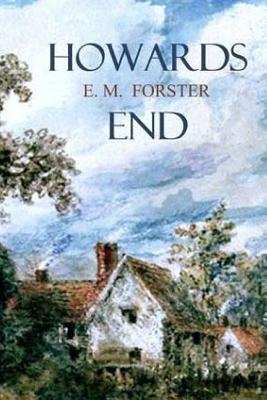4thace reviewed Howards End by Edward Morgan Forster
Review of 'Howards End' on 'Goodreads'
5 stars
In college I was assigned A Passage to India in English class and did not appreciate it much. But I thought I might not have given the author a fir chance and decided to listen to the audiobook version of this other novel of his, which is best remembered by many in its cinematic version (which I have not seen). I am glad that I did, to experience some good writing of a non-experimental sort that combines a domestic drama with some explosive class ideas due to take to take center stage in the following decades of the twentieth century.
We see the story largely through the eyes of the elder Schlegel sister, Margaret, who is progressive socially without being flashy about her opinions. Somehow, I am not entirely clear how, she ends up with the capitalist Henry Wilcox as his second wife, which constitutes the engine of the major …
In college I was assigned A Passage to India in English class and did not appreciate it much. But I thought I might not have given the author a fir chance and decided to listen to the audiobook version of this other novel of his, which is best remembered by many in its cinematic version (which I have not seen). I am glad that I did, to experience some good writing of a non-experimental sort that combines a domestic drama with some explosive class ideas due to take to take center stage in the following decades of the twentieth century.
We see the story largely through the eyes of the elder Schlegel sister, Margaret, who is progressive socially without being flashy about her opinions. Somehow, I am not entirely clear how, she ends up with the capitalist Henry Wilcox as his second wife, which constitutes the engine of the major part of the story. Also key to the plot are the Bast couple, impoverished and unable to improve their circumstances on their own. I think another author (D. H. Lawrence?) might have made them the central figures instead of this lower rank. It's interesting to see how the tumult surrounding them is given no purple prose by Forster. Disgrace and death are mentioned in such an offhand way it would be easy to miss while going through the pages quickly. I have to think this is because the Bast's class of people was virtually invisible to those of privilege, if one disappears, then another will just appear in their place, according to Henry. Telling the story from the Bast's point of view would have deprived the reader of the understanding of the way the economic system is constructed by those at the top, the ones they have to defer to even if they hate it. So by shifting the viewpoint to the more privileged, yet not exalted, person of Margaret the author allows us to see and sympathize to some degree with both ends of the class system.
Besides this careful plot construction, there is beauty in the words as Forster describes the changing face of London with its new construction all practicality without quaintness, and with the motor car taking its dominance there and in the countryside. He invests the secondary characters with enough care that we can remember them when they reappear in the story, and gives enough clues about the relative worth of the houses the Wilcoxes have collected to establish a sense of their power in the hierarchy. This skill at storytelling enhanced my pleasure in reading a book fundamentally about ideas, by making the abstract signifiers of station concrete. Some time, not right away, I may tackle A Passage to India once more.
The book narration pulled me along well, helping me to make sense of the various convolutions of the story and most of the characters popping up. By the end, I had a sense of what relation the house Howards End had to the themes of the story, which turned out not to be the role I had been expecting.

